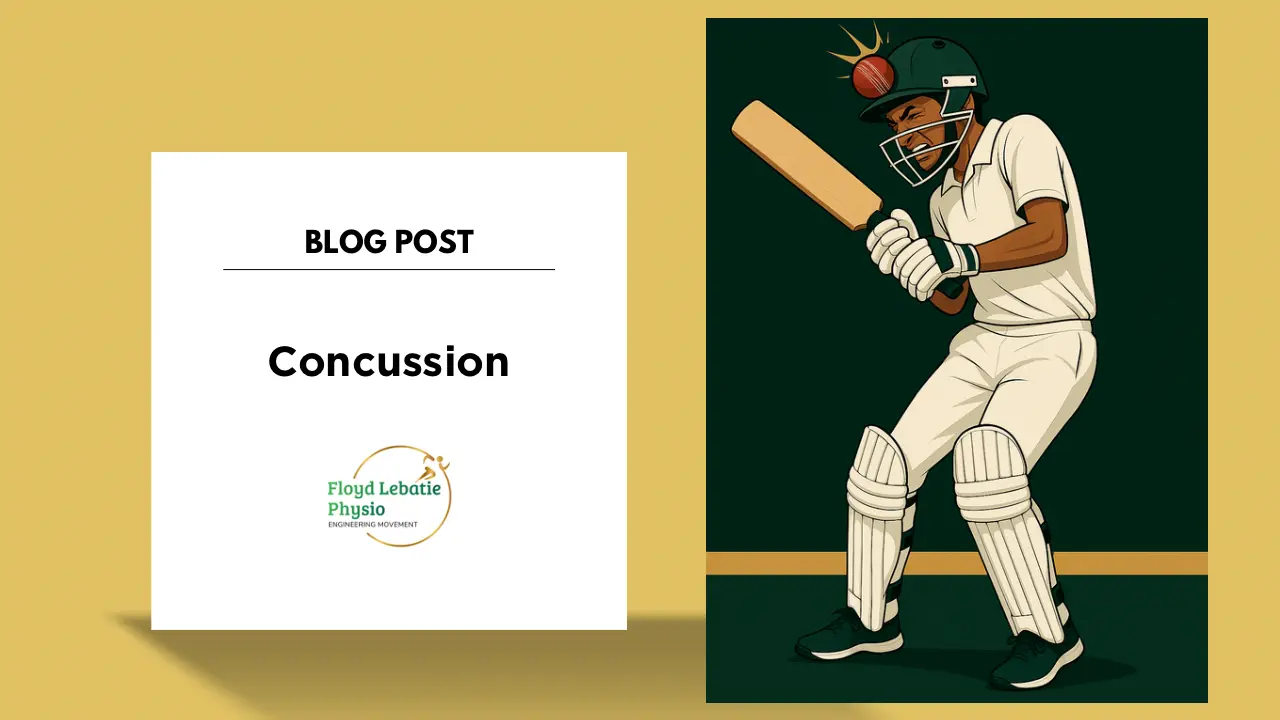How Can Physiotherapy Help After a Concussion?
Physiotherapy plays a multidimensional role in concussion recovery. Rather than a one-size-fits-all approach, physiotherapists tailor treatments based on the individual’s specific impairments.
1. Vestibular Rehabilitation
- Concussions often disrupt the vestibular system, which controls balance and spatial orientation.
- Physiotherapists use vestibular therapy to treat dizziness, vertigo, and balance issues through head movements, eye tracking, and balance exercises.
2. Cervical Spine Management
- Neck strain or whiplash often accompanies concussions, especially in car accidents or contact sports.
- Physiotherapists assess and treat neck pain, stiffness, and muscle tension with manual therapy, posture correction, and specific exercises.
3. Exercise Prescription
- Old advice to “rest in a dark room” indefinitely is outdated.
- Physiotherapists guide patients through a graded return-to-activity program, using sub-symptom threshold aerobic exercise to improve blood flow to the brain and promote healing.
- Controlled exertion is key to avoiding symptom exacerbation.
4. Vision and Oculomotor Training
- Blurred vision, difficulty focusing, or eye fatigue are common post-concussion issues.
- Physios may collaborate with optometrists or use targeted oculomotor exercises to retrain eye movement and coordination.
5. Cognitive and Symptom Monitoring
- While not replacing neuropsychologists, physios can track symptom progression, identify red flags, and ensure cognitive loads are balanced with physical recovery.
- They often work within a multidisciplinary team, including physicians, neurologists, and psychologists.
6. Return-to-Play or Return-to-Work Programs
- Physiotherapists guide individuals through sport- or job-specific reintegration, ensuring a safe return to high-demand activities without risk of re-injury.
Key Benefits of Physiotherapy in Concussion Management:
- Accelerates symptom resolution
- Reduces risk of prolonged post-concussion syndrome
- Provides individualized, evidence-based recovery plans
- Enhances physical and mental confidence post-injury
- Promotes safe return to sport, school, or work
Conclusion:
Concussions are complex, but recovery doesn’t have to be passive. Physiotherapy empowers patients with active, structured, and personalized care. Whether you’re an athlete, a student, or recovering from a fall, a physiotherapist can help you safely navigate the path to recovery and get you back to doing what you love.
If you or someone you know is struggling with lingering concussion symptoms, consider speaking with a physiotherapist who specializes in neurological or vestibular rehabilitation.


